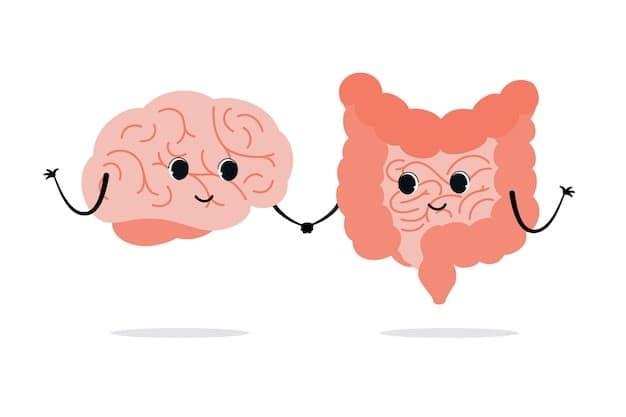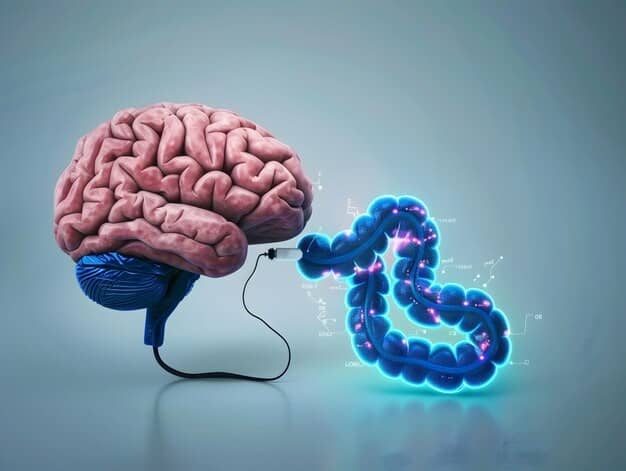Gut-Brain Connection in Migraine Management

Introduction to the Link Between Gut & Brain and How It Impacts Migraine Management
Migraines are more than just severe headaches; they are complex neurological diseases that can significantly impair quality of life. While best migraine treatment in Mumbai techniques have focused on managing symptoms through medications and lifestyle modifications, there is mounting evidence that our gut health may play an important role in the onset and management of migraines. This is when the gut-brain connection and migraine becomes clear.
Understanding how the gut and brain connect can throw fresh light on migraine triggers and suggest prospective migraine management options. In this blog, RNR Medicine looks at the gut-brain link, how it affects migraines, and potential best migraine treatment in Mumbai.
Understanding the Gut-Brain Connection

The stomach and brain are inextricably linked via the gut-brain axis, a bidirectional communication network that includes the central nervous system (CNS) and the enteric nervous system (ENS), also known as the “second brain.” The ENS regulates digestion and interacts with the CNS via many routes, including:
- The Vagus nerve: Connects the brain to the abdomen, allowing communication between the brain and the digestive organs.
- Neurotransmitters: The gut produces chemicals like serotonin, dopamine, and gamma-aminobutyric acid (GABA), which can alter brain function. For example, the stomach produces over 90% of serotonin, an important mood-regulating neurotransmitter.
- Gut Microbiota: The billions of bacteria that live in the gut create compounds that affect brain health and function. Dysbiosis, or an imbalance in gut flora, has been related to a number of neurological diseases, including migraines.
- Hormonal Signals: The stomach produces hormones that drive hunger, mood, and inflammation, which can impact brain function and overall health.
Is There a Link Between Migraines And The Gut? The Gut-Brain Connection in Migraine

Researchers have begun to investigate the relationship between gut health and migraines, with many main processes potentially linking the two.
Inflammation

Are migraines caused by the stomach? Inflammation is a common migraine trigger, and the stomach is a key source of inflammatory responses.
- When the gut lining is weakened, a condition known as “leaky gut” can develop.
- This permits bacteria and poisons to enter the bloodstream and cause systemic inflammation, which can reach the brain.
- Increased inflammation in the brain can lead to more frequent and severe headaches.
Serotonin Dysregulation

Are migraines caused by the stomach? As previously stated, serotonin is mostly synthesized in the stomach and plays a critical function in mood control and pain perception.
- Dysregulation of serotonin has been linked to migraine attacks.
- Many migraine medicines, including triptans, target serotonin receptors.
- Poor gut health, typified by dysbiosis or inflammation, can cause serotonin imbalances, which may contribute to migraine development.
Gut Microbiota and Migraine

Is there an association between migraine and gastrointestinal disorders? Recent research indicates that the makeup of gut bacteria can influence the frequency and severity of migraines.
- People with migraines have distinct gut microbiota profiles than those without.
- For example, some research reveal that those who suffer from migraines have higher pro-inflammatory gut bacteria, which can exacerbate their symptoms.
- In contrast, a healthy gut microbiota promotes overall brain health by creating anti-inflammatory chemicals and regulating neurotransmitter levels.
Food Sensitivities and Triggers

Many migraine sufferers identify certain meals as triggers. This may be associated with poor gut health and dysbiosis.
- When the gut is weakened, food sensitivities develop, causing inflammation and, as a result, migraines.
- Aged cheeses, processed meats, and meals high in histamine are among the most common migraine triggers observed by the best migraine doctors.
- A healthy gut can handle these meals more efficiently, lowering the risk of developing a migraine.
How Can I Improve My Gut Health For Migraines? 6 Strategies For Managing Migraines Through the Gut-Brain Connection
How do you treat gastric migraines? Given the close link between gut health and migraines, treating the gut-brain axis may provide a means to minimize migraine frequency and severity. The following are some evidence-based techniques that address the gut-brain link for migraine management:
Dietary Adjustments

What nutrition helps migraines? A well-balanced, anti-inflammatory diet can boost gut health and lessen migraine triggers. Key dietary changes recommended by the best migraine clinic in Mumbai include:
- Reducing processed foods: Processed meals frequently contain additives, preservatives, and chemicals, which can disturb gut health and cause inflammation. Avoiding highly processed foods may help to lessen migraine frequency.
- Incorporating probiotic-rich foods: What foods stop migraines? Foods such as yogurt, kefir, sauerkraut, and kimchi include probiotics, which can help promote a healthy gut microbiome. According to research, a well-balanced microbiome might reduce inflammation and increase serotonin levels, potentially lowering migraines.
- Elimination Diet: Identifying and removing certain dietary triggers can help. This is carefully removing possible trigger foods and reintroducing them one at a time to see which may be contributing to migraines.
Probiotic and Prebiotic Supplements

Do probiotics help with migraines? In addition to probiotic meals, supplements can help balance gut bacteria and manage migraine.
- Probiotic supplements deliver helpful bacteria into the gut, and best probiotics for migraines (fibers that feed good bacteria) help them grow.
- Several studies suggest that probiotic supplements help improve migraine frequency and intensity by lowering inflammation and increasing gut-brain connection.
Stress-Management Techniques

Stress is a common migraine trigger, and it also has an impact on gut health.
- Stress can affect the gut’s microbiome, Increase intestinal permeability (resulting in leaky gut) and modify neurotransmitter synthesis.
- Regular stress-reduction practices advised by the doctors at RNR Medicine, such as meditation, deep breathing, yoga, and mindfulness might enhance gut and brain health, potentially lowering the frequency of migraines.
Improving Sleep Quality

Poor sleep is a common migraine trigger, and it can also harm gut health.
- Sleep difficulties affect the gut microbiota and enhance inflammation, resulting in a vicious cycle that exacerbates migraines.
- Prioritizing excellent sleep hygiene, such as adhering to a consistent sleep schedule, avoiding devices before bed, and developing a calming bedtime routine, can promote gut-brain health and minimize migraines.
Hydration and Electrolyte Balance

Dehydration is a common cause of migraines.
- Ensuring sufficient hydration and electrolyte balance is critical for gut and brain function.
- Water is essential for digestion because it helps eliminate toxins from the gut, lowering inflammation and supporting improved gut function.
- Including electrolyte-rich foods such as bananas, avocados, and leafy greens can help with hydration and gut health.
Medication and Gut Health

Certain migraine treatments, such as NSAIDs (nonsteroidal anti-inflammatory drugs), might harm gut health by increasing inflammation and dysbiosis.
- If you routinely take migraine medication, talk to your doctor at the our migraine hospital about alternate therapies.
- Biofeedback, acupuncture, cognitive behavioral therapy are some techniques that can provide relief without sacrificing gut health.
The gut-brain axis and migraine is a complex and growing subject of study, but preliminary evidence suggests that a healthier gut may result in fewer, less severe migraines. While it is not a cure-all, improving gut health may supplement typical migraine therapies and help lessen the frequency and severity of attacks. As researchers continue to explore the multiple ways the stomach and brain connect, tailored migraine treatments that incorporate gut health are likely to become more widespread.
For those seeking a natural and holistic approach to migraine relief, RNR Medicine, best migraine clinic in Mumbai, offers innovative solutions that focus on gut-brain health. By harnessing the power of natural remedies, RNR Medicine helps restore balance, reduce inflammation, and manage migraines effectively.





